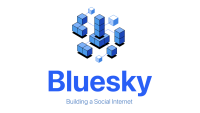Drupal is a powerful open-source content management system (CMS) that provides a robust framework for building and managing websites and applications. Its versatility and scalability make it a preferred choice for a wide range of projects, from simple blogs to complex enterprise-level platforms. Here’s a closer look at what Drupal is used for:
1. Website Development
Drupal is widely used for developing websites of all types. Its flexible architecture allows developers to create custom themes and modules, enabling them to tailor websites to meet specific business needs. Whether it’s a corporate site, e-commerce platform, or a personal blog, Drupal provides the tools necessary to create a unique online presence.
2. Content Management
One of Drupal's primary strengths lies in its content management capabilities. It allows users to easily create, edit, and organize content. With features like version control, user roles, and permissions, organizations can manage content collaboratively and securely. This makes it particularly suitable for news sites, educational institutions, and any organization that relies heavily on content publishing.
3. E-commerce Solutions
With the help of modules like Drupal Commerce and Ubercart, Drupal can be transformed into a fully functional e-commerce platform. These modules provide features such as product catalog management, shopping cart functionality, payment processing, and order management. This makes it an ideal choice for businesses looking to sell products or services online.
4. Community Platforms
Drupal excels in building community-oriented websites and social networking platforms. Its robust user management system allows for complex user roles and permissions, facilitating interaction through forums, blogs, and user-generated content. Websites like forums, social networks, and collaborative projects can benefit significantly from Drupal's community features.
5. Intranets and Extranets
Many organizations use Drupal to create internal intranets or extranet portals. With its ability to manage user permissions and secure content, Drupal can facilitate communication and collaboration among employees or partners. Organizations can create custom dashboards, knowledge bases, and document management systems tailored to their needs.
6. Educational Institutions
Drupal is also popular among educational institutions for creating learning management systems (LMS) and websites. Its capabilities for managing multiple user roles make it easy to create profiles for students, teachers, and administrators. Features like course management, event calendars, and resource sharing can all be implemented within a Drupal-based educational platform.
7. Government Websites
Many government agencies and organizations use Drupal to build secure and accessible websites. Its compliance with web standards and strong security features make it an excellent choice for delivering public services online. Government sites often require user-friendly interfaces and comprehensive content management, both of which Drupal provides effectively.
8. Multi-language Websites
Drupal has built-in support for multilingual content, making it an excellent choice for organizations that operate in multiple regions or need to reach diverse audiences. With the help of various translation modules, developers can create websites that cater to multiple languages, ensuring accessibility and engagement for global users.
Conclusion
In summary, Drupal is a versatile CMS that can be adapted to meet a wide range of needs across different industries. Its flexibility, strong content management capabilities, and community support make it a go-to choice for developers and organizations looking to build and maintain robust websites and applications. Whether you’re developing a small personal blog or a large-scale enterprise site, Drupal provides the tools and features necessary for success.







